- Spirituality
Dhanvantari Sadhana
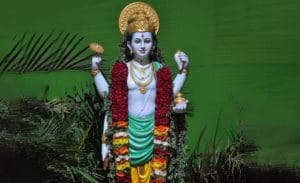
Our ancestors had it right. Health is wealth. They use to say that our body is a temple for our soul...
Diwali | Maha Lakshmi and Maha Kali Worship
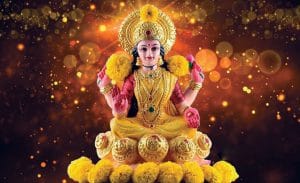
The word Diwali is derived from Deepavali which translates to rows of lamps, Deepa meaning lamp and ...
Shree Yantra – Meaning and Benefits

In Sanskrit, the word Yantra comes from the root word Yam which means instrument and or support and ...
How to Perform Diwali Pooja
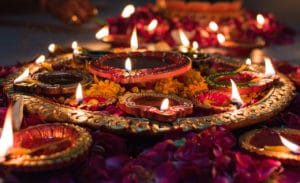
One of the most important rituals of Diwali is the Diwali Pooja performed on the third day of the fi...
MahaSaraswati – The Bestower of Wisdom MahaSaraswati (A Part of Tridevi Series)
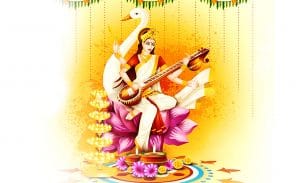
In this three-blog series, we are discussing the three prime Goddesses, MahaKali, Mahalakshmi and Ma...
MahaLakshmi – The Bestower of Wealth MahaLakshmi (A Part of Tridevi Series)
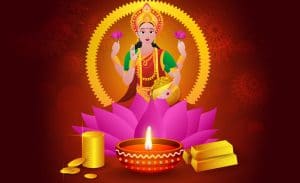
During Navratri, as Sadhaks go through their spiritual journey, and Maha Kali, MahaLakshmi and MahaS...
Maha Kali – The Cleanser, The Kriya Shakti
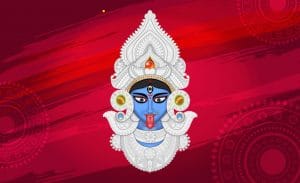
As Navratri begins, every Sadhak begins their journey to spiritual prowess, cleansing, attaining...
Maa Kushmanda – The Creator of the Universe
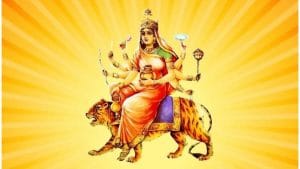
Ku means little, Ushma means warmth and Anda means egg. Maa Kushmanda is therefore the force that pr...
Fasting During Navratri – Why and How

Abstaining from certain foods, thoughts and practices for a period of time in order to steer the int...
Navratri – The Nine Nights of Consciousness – Explained
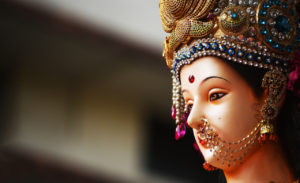
The Nine Nights of Consciousness begin in ten days and in this blog, we explain to you what Navratri...
Navratri Preparation – Cleansing Our Homes, Bodies, and Spaces

Navratri begins soon and as we begin preparations for welcoming the Nine forms of Mother Goddess the...
The Shodasha Sanskaras – Part 1 of 2
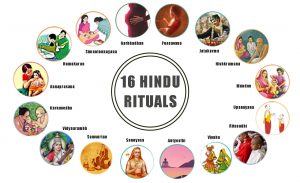
The word Shodasha means 16 and the word Sanskara translates to psychological imprints, but in this c...




Awesome! Its genuinely amazing post, I have got much clear idea regarding from this piece of writing. Nanete Hodge Hausmann
Simply want to say your article is as astonishing. Austin Alexandro Attenborough
Hi there, after reading this remarkable paragraph i am as well happy to share my knowledge here with colleagues. Joy Huey Reggie
Fantastic site. A lot of helpful info here. I am sending it to a few friends ans additionally sharing in delicious. And certainly, thanks on your effort! Coreen Kingston Annis
Definitely, what a fantastic blog and revealing posts, I definitely will bookmark your site. Best Regards! Margit Emmit Hilar
I used to be able to find good advice from your blog posts. Gerta Huntington Leonie
I have recently started a blog, and the information you offer on this website has helped me a lot. Thank you for all of your time & work. Aimil Giacobo Lanfri
Thankfulness to my father who stated to me concerning tis web site, this webpage is truly remarkable. Lian Edan Kaz
Thanks for some other magnificent article. Where else may just anyone get that kind of information in such an ideal way of writing? I have a presentation next week, and I am at the look for such info. Maureen Galen Stutzman
Hello there, You have done an excellent job. I will certainly digg it and personally recommend to my friends. I am sure they will be benefited from this site. Mel Averill Benedikt
There sure is a lot of content on the internet these days. Here is one more contribution for everyones benefit. Great job and thank you. Peria Mel Patin
Absolutely stunning! What a beautiful piece! Well done!, Dale! Cecelia Torrence Sicard
I used to be able to find good advice from your content. Bryna Isiahi Geaghan
Excellent blog post. I definitely appreciate this site. Keep writing! Anjanette Stanly Grussing